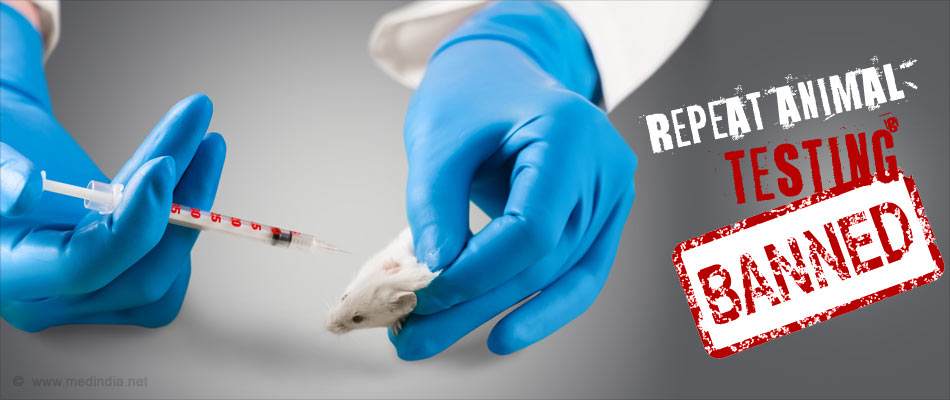
Gauri Maulekhi, HSI/India consultant and a trustee of People for Animals, said, “We welcome and laud this move by the Health Ministry. The new amendment will not only save thousands of animals every year from being subjected to redundant animal testing, but it also marks the beginning of a potential new era of sophisticated animal testing alternatives in India. We look forward to continuing our association with the Ministry to ensure that use of validated alternatives is encouraged as the Drug Technical Advisory Board has recommended.”
Smt. Maneka Sanjay Gandhi, Union Minister of Women & Child Development, wrote to the Ministry regarding repeat animal testing. Upon reviewing the request, the Investigational New Drug Committee recommended the Drug Technical Advisory Board, (DTAB) that if the new drugs were tested elsewhere under Good Laboratory Practice conditions and align with India’s regulatory requirement, repeat drug toxicity testing shall not be required.
Since 2011, India is adherent to the Organization for Economic Cooperation and Development (OECD) decision regarding Mutual Acceptance of Data (MAD). The data generated by the Indian Good Laboratory Practice laboratories must be accepted in all the OECD member countries, and vice-versa. The OECD estimates that adherence to MAD saves more than €150 million and thousands of animals per year by avoiding duplicative animal testing.
The ban on repeat animal testing of new drugs will save thousands of animals from painful and lethal poisoning during drug toxicity tests. The ban will also help the pharma industry who will have to undertake one less step in bringing a new drug to the market. The move towards the prohibition of repeat animal testing for drugs comes under The Drugs and Cosmetics Act, 1945.
The DTAB committee encouraged the use of internationally accepted non-animal alternatives such as “organs-on-chips”. Scientists around the world are developing non-animal testing methods which can replace the use of animals. Non-animal testing is both faster and cheaper. Scientists at Harvard University’s Wyss Institute have created “organs-on-chips” that contain human cells that mimic the structure and function of human organs and systems. These chips can be used instead of animals in drug testing and toxicity testing. Organs-on-chips have been shown to replicate human physiology, diseases, and drug responses more accurately than animal testing.
- http://indiaeducationdiary.in/Shownews.asp?newsid=38234
Source-Medindia










